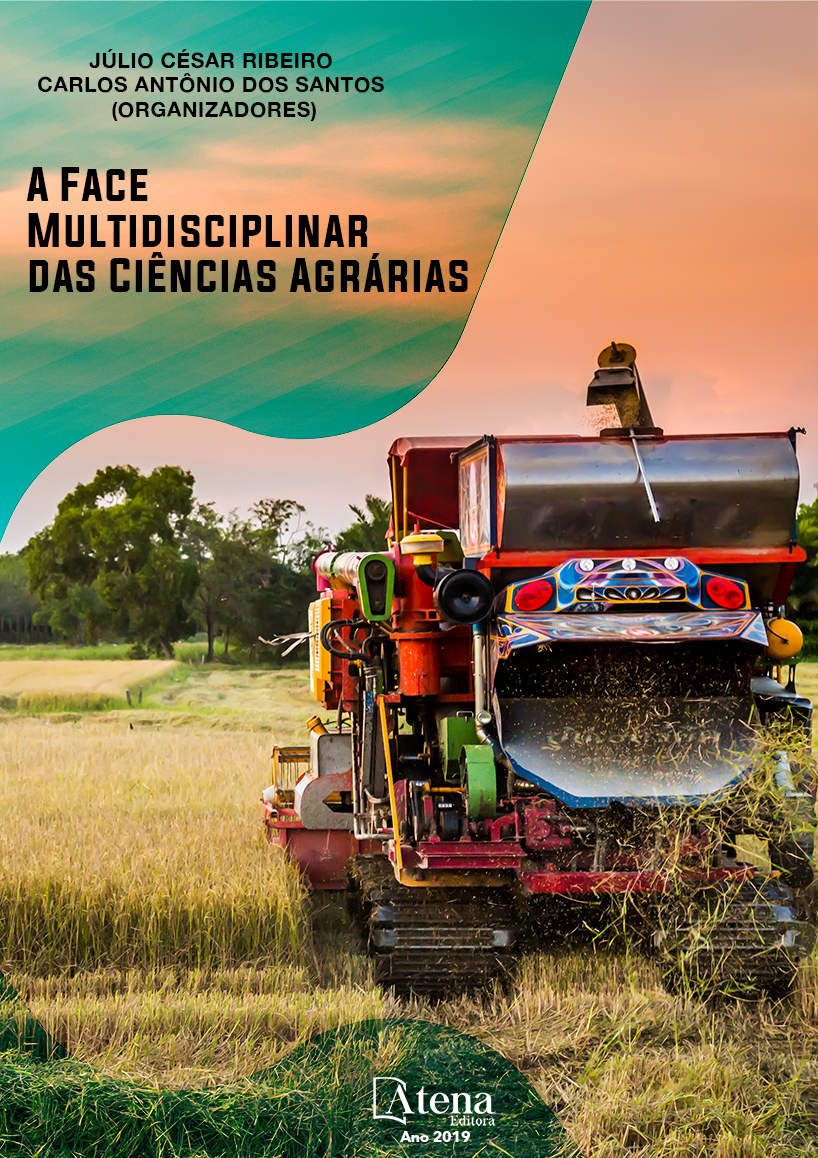
TEOR E ACÚMULO DE POTÁSSIO EM PLANTAS DE ALFACE AMERICANA, LISA E CRESPA CULTIVADAS EM SOLUÇÃO NUTRITIVA COM DIFERENTES DOSES DE COBRE
Objetivou-se avaliar a massa seca,
teor, acúmulo e índice de translocação médio
de potássio em plantas de alface do tipo
americana (Laurel), lisa (Luara) e crespa (Ariel),
cultivadas em solução nutritiva com presença
de doses crescentes de cobre. O experimento
foi conduzido por um período de 42 dias, em
sistema hidropônico do tipo NFT em casa de
vegetação na Universidade Federal Rural do
Rio de Janeiro (UFRRJ), localizada no município
de Seropédica, RJ. Como fonte de cobre,
utilizou-se o nitrato de cobre (Cu(NO3)23H2O),
nas doses adicionais de 0 (controle); 0,5; 1,5
e 2,5 mg L-1. Após o período experimental, as
plantas foram coletadas, sendo seccionadas
em parte aérea e raízes, as quais foram secas
a 65°C até atingirem peso constante, obtendose
posteriormente a massa seca. As amostras
foram trituradas e digeridas para a determinação
do teor de potássio nos tecidos. Os resultados
foram submetidos à análise de variância com
aplicação do teste F e os valores médios,
quando significativos, comparados entre si pelo
teste Tukey a 5% de probabilidade. A solução
nutritiva controle (0 mg L-1) possibilitou maior
massa seca na parte aérea de plantas de
alface do tipo crespa. No entanto, em média,
o maior acúmulo de potássio na parte aérea
ocorreu em plantas de alface do tipo crespa
submetidas ao tratamento com 0,5 mg L-1 de
cobre. Plantas de alface do tipo americana, lisa
e crespa apresentaram maior e menor índice
de translocação de potássio das raízes para a
parte aérea quando submetidas ao tratamento
com 0,5 mg L-1 e 2,5 mg L-1, respectivamente.
TEOR E ACÚMULO DE POTÁSSIO EM PLANTAS DE ALFACE AMERICANA, LISA E CRESPA CULTIVADAS EM SOLUÇÃO NUTRITIVA COM DIFERENTES DOSES DE COBRE
-
DOI: 10.22533/at.ed.94819240713
-
Palavras-chave: Nutrientes, Lactuca sativa L., variedades de alface.
-
Keywords: Nutrients, Lactuca sativa L., lettuce varieties
-
Abstract:
The objective of this study was to evaluate the dry mass, average content
and accumulation of potassium in the aerial part and roots of lettuce plants of the
American type (Laurel), lisa (Luara) and crespa (Ariel), cultivated in nutrient solution
with increasing doses of copper. The experiment was carried out during the months of
August and September of 2017, for a period of 42 days, in an NFT hydroponic system
in a greenhouse at the Federal Rural University of Rio de Janeiro (UFRRJ), located in
the city of Seropédica, RJ. Copper nitrate (Cu(NO3)23H2O was used as the source of
copper at additional doses of 0 (control); 0.5; 1.5 and 2.5 mg L-1. After the experimental
period, the plants were collected, being sectioned in aerial part and roots, which were
dried at 65°C until reaching constant weight, obtaining later the dry mass. The samples
were ground and digested for the determination of the potassium content in the tissues.
The results were submitted to analysis of variance with application of the F test and the
mean values, when significant, were compared by the Tukey test at 5% of probability.
The nutritive control solution (0 mg L-1) allowed a higher dry mass in the aerial part of
crisp-type lettuce plants. However, on average, the highest accumulation of potassium
in the aerial part occurred in crisp-type lettuce plants submitted to treatment with 0.5
mg L-1 of copper. Lettuce plants of the american, smooth and curly type showed higher
and lower potassium translocation index of the roots to the aerial part when submitted
to treatment with 0.5 mg L-1 and 2.5 mg L-1, respectively.
-
Número de páginas: 15
- Júlio César Ribeiro
- Everaldo Zonta
- Nelson Moura Brasil do Amaral Sobrinho
- Uliana Ribeiro Silva
- Élio Barbieri Júnior
- Amanda Santana Chales


